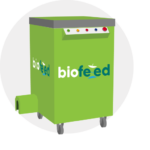The topic of food waste is a hot-button issue in Australia. As the population grows and more people move to urban centres, the importance of keeping track of our resource consumption becomes more urgent. In fact, Australians produce about 2 million tonnes of food waste every year – that’s about one-third of the total waste we create annually.
Australians need better education around what constitutes safe food storage practices so that they can prevent further wastage in future generations. For every Aussie, 6.2kg of food waste is generated each week, which equates to A$10 billion worth of food wasted annually.
The impact that this has on the environment is substantial – about one-third of Australia’s CO2 emissions come from agricultural production, processing, transport, and storage.
- Up to 40% of all water used in agriculture is from irrigation. This means that if we reduced our overall food waste by 20%, this would reduce our water usage by 10%.
- For businesses and organisations, the cost of food waste is not just measured in dollars and cents but also in the impact it has on the environment.
In Australia alone, a staggering A$8 billion worth of edible food is thrown away each year according to The Australian Food & Grocery Council (AFGC). While some may argue that it’s money wasted when you consider how much we pay for fresh food at retail stores, there are real costs associated with producing this food in the first place – including labour, resources such as water and energy, and machinery maintenance.
Organizations that are responding to consumer demand for more sustainable and environmentally-friendly practices can gain a competitive advantage.
There is a growing trend for consumers to buy products from companies that are environmentally friendly and sustainable. The Sustainable Business Council of Australia estimates that by 2030, there will be A$1 trillion in annual revenue generated by sustainable practices. This means that organisations that are responding to consumer demand for more sustainable and environmentally-friendly practices can gain a competitive advantage.
The good news is that Australian businesses are increasingly viewing food waste as a resource for renewable energy production and an alternative source of fertiliser and soil conditioner, rather than as a problem to be disposed of at a landfill or incinerated.
The benefits of this approach are numerous. Not only does it reduce landfill waste, but it also reduces greenhouse gas emissions by displacing fossil fuel-based generators; increases recycling, which in turn reduces the need to extract materials from the earth; improves soil quality by adding organic matter that stimulates microbial activity and enhances plant growth; reduces costs associated with disposal methods such as landfills or incinerators; increases revenue from selling surplus food items for energy production; improves brand awareness by aligning yourself with sustainability principles.
Fortunately, with Biofeed these strategies are easy to implement and maintain, by-products leftover from the fermentation process include; vegetable oil, protein-rich biomass, organic fertilisers, and animal feed. Imagine a business that can not only cut down its waste and carbon footprint but also improve its efficiency, save resources and generate profit. Biofeed is a technology trying to make such a business possible through innovative and disruptive technology.


Hi, this is a comment.
To get started with moderating, editing, and deleting comments, please visit the Comments screen in the dashboard.
Commenter avatars come from Gravatar.